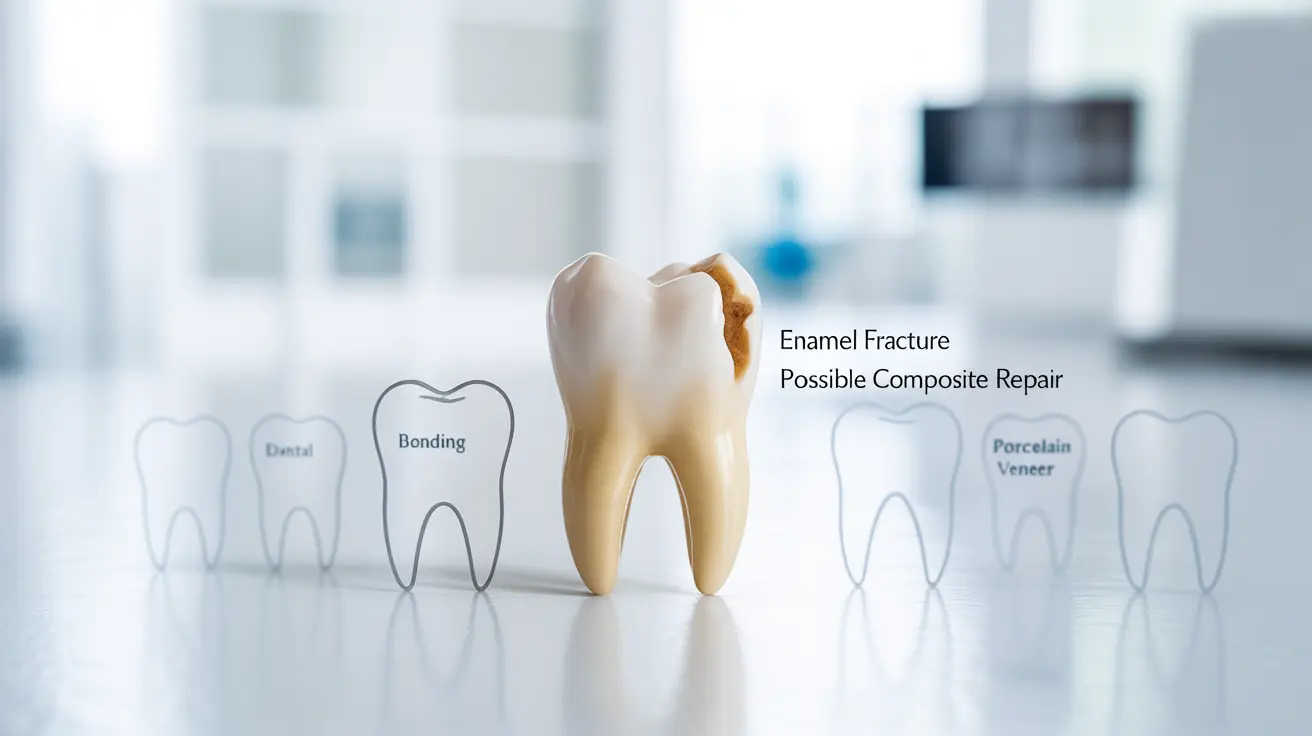A chipped tooth can happen unexpectedly and range from a minor cosmetic concern to a serious dental emergency. Understanding the causes, symptoms, and treatment options is crucial for maintaining your oral health and preventing further complications. This comprehensive guide will help you navigate what to do if you experience a chipped tooth and when to seek professional help.
Understanding Chipped Teeth: Causes and Risk Factors
Chipped teeth commonly occur due to various factors and activities in our daily lives. Common causes include:
- Biting down on hard foods or objects
- Sports injuries or accidents
- Grinding teeth (bruxism)
- Falls or trauma to the face
- Weakened teeth due to decay or old fillings
Certain habits and conditions can increase your risk of experiencing a chipped tooth, such as participating in contact sports without proper mouth protection or having untreated dental problems that weaken tooth structure.
Recognizing the Signs of a Serious Chip
While some chips are minor, others require immediate attention. Key indicators that your chipped tooth needs urgent care include:
- Severe pain or sensitivity
- Sharp edges that irritate your tongue or cheek
- Visible damage extending below the gum line
- Difficulty biting or chewing
- Bleeding around the affected tooth
Immediate Steps After Chipping a Tooth
If you chip your tooth, taking prompt action can help prevent complications and reduce discomfort:
- Rinse your mouth with warm water
- Apply cold compression to reduce swelling
- Cover sharp edges with dental wax if available
- Take over-the-counter pain medication if needed
- Contact your dentist for an appointment
Professional Treatment Options
Dentists offer several treatment approaches depending on the severity and location of the chip:
Bonding
For small chips, dental bonding using tooth-colored composite resin can effectively restore the tooth's appearance and function. This conservative treatment usually requires a single visit.
Dental Veneers
When chips affect the front teeth, porcelain veneers can provide a long-lasting cosmetic solution. These thin shells cover the front surface of the tooth, creating a natural-looking appearance.
Dental Crown
Large chips may require a full crown to protect the remaining tooth structure and restore functionality. Crowns can be made from various materials, including porcelain, ceramic, or metal alloys.
Prevention Strategies
Preventing chipped teeth involves several protective measures:
- Wear a mouthguard during sports activities
- Avoid biting hard objects or foods
- Address teeth grinding with a night guard
- Maintain regular dental check-ups
- Practice good oral hygiene
Frequently Asked Questions
What are the common causes of a chipped tooth and how can I prevent it?
Common causes include trauma, biting hard objects, and teeth grinding. Prevention involves wearing protective gear during sports, avoiding hard foods, using a night guard if you grind your teeth, and maintaining regular dental check-ups.
What symptoms indicate that a chipped tooth needs immediate dental treatment?
Seek immediate treatment if you experience severe pain, sensitivity to temperature, sharp edges that irritate soft tissue, visible damage below the gum line, or difficulty biting and chewing.
What are the treatment options for fixing a chipped tooth and how do dentists decide which to use?
Treatment options include bonding, veneers, and crowns. Dentists choose based on the chip's size, location, and severity. Small chips often need only bonding, while larger damages may require crowns.
What should I do immediately after chipping a tooth to reduce pain and avoid complications?
Rinse with warm water, apply cold compression to reduce swelling, cover sharp edges with dental wax if available, take over-the-counter pain medication if needed, and contact your dentist promptly.
Can a chipped tooth cause infections or other long-term dental problems if left untreated?
Yes, untreated chipped teeth can lead to infections, decay, and further damage. The exposed inner tooth structure becomes vulnerable to bacteria, potentially causing nerve damage and requiring more extensive treatment like root canals if left unaddressed.




